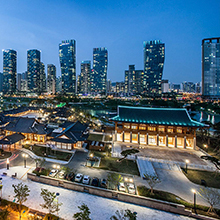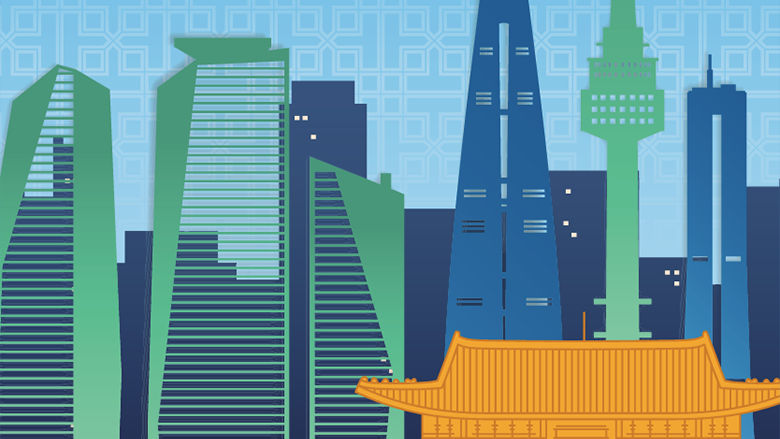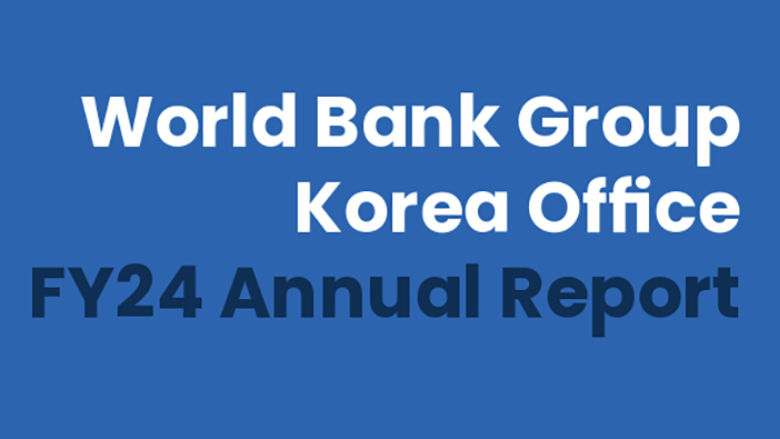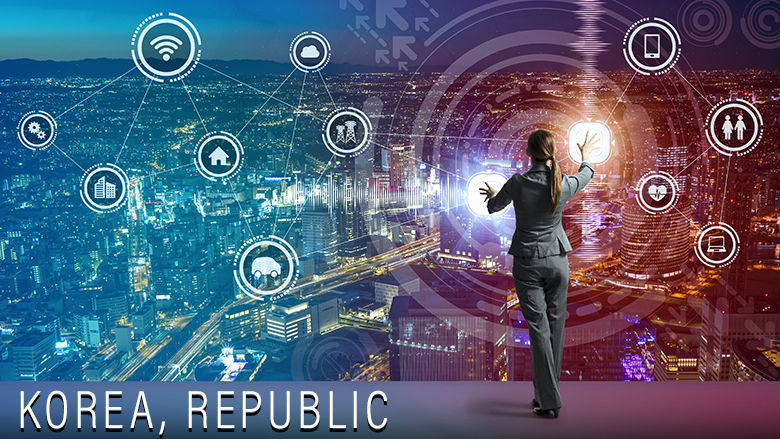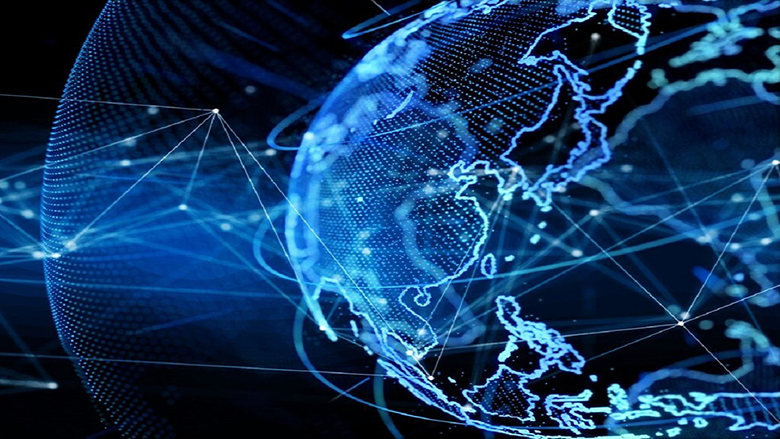The Republic of Korea became a member of the International Bank for Reconstruction and Development (IBRD) in 1955 and joined the International Development Association (IDA) in 1961. The World Bank began its operations in Korea in 1962 when it completed the first Country Economic Report and approved an IDA credit of US$17 million to expand and improve the Korean National Railroad.
By 1973, Korea’s economy had progressed sufficiently to require no further IDA assistance. The World Bank then supported Korea through low-interest loans, policy advice, and technical assistance from IBRD. Over the years, from IDA and IBRD, the Bank completed 128 credit or loan projects in Korea, disbursing funds totaling US$15 billion.
The World Bank’s work in Korea evolved to match the country’s changing needs. In the early years, the Bank focused on lending for agriculture, irrigation, rural development, small and medium industry, transportation (such as roads, ports, and railways), urban development, and education. Investment in agriculture increased substantially in the 1970s, and then declined in the 1980s as the economy shifted to a greater emphasis on industrial development. Priorities shifted to human capital as the economy demanded more skilled labor and research and development (R&D) for science and technology.
Later, social infrastructure – such as urban water supply, sanitation, and sewerage – and its environmental impact became a high priority as the country’s industrial sector and its energy and transportation infrastructure became more developed. During this period, heavy emphasis was placed on achieving greater social equity through a fair distribution of income and wealth.
During the financial crisis of the late 1990s, the World Bank supported the government of Korea’s reform programs through a series of adjustment loans, worth a total of US$7 billion. These programs ranged from financial sector restructuring to reforms in the corporate sector and labor market reforms as well as in social safety nets. The reforms helped make the country’s economic model more sustainable and resilient to economic downturns.
The World Bank Group hosts a range of joint efforts and projects with Korean partners that aim to help developing countries enhance financial sector management; promote investment in green growth; share expertise in information communication technology; and assist fragile and conflict-affected states.
For example, the Korea-World Bank Partnership Facility, launched in 2013, has provided US$90 million over three years and a replenishment of US$150 million from FY20 through FY23 to finance global and regional projects that support economic development and co-financing investments at the country level. The emphasis is on generating and transferring development best practices, with low and lower middle-income countries eligible for funding under the new facility.
In December 2013, the World Bank Group opened an office in Songdo, Incheon, and a liaison office in Seoul. The current vision is to establish the WBG Korea Office as a global center for innovation and technology for sustainable development.
This global center is organized into two pillars.
- Digital innovation, which aims to assist developing countries in areas such as promotion of innovative policies, data governance, digital finance, cybersecurity readiness within the financial sector, emerging technologies such as AI, blockchain, and edge computing, and digital solutions in education and health.
- Innovative green growth, expanding programs in renewable green energy transition, marine plastics, smart cities, and carbon pricing. The Korea Office is collaborating with the Korea Green Growth Trust Fund (KGGTF) to identify and implement the most innovative, technical, and operational solutions to specific development challenges in our client countries.
Finally, mobilizing private sector investment and supporting Korean investors to address green transition and digitalization is a major focus for the Bank Group’s International Finance Corporation (IFC) and the Multilateral Investment Guarantee Agency (MIGA).
In 2023, the Korea - Green Resilient and Innovative Development (K-GRID) program was launched at IFC with a US$30 million commitment. The K-GRID program provides Advisory Services and Blended Finance investments for projects that advance climate and digital solutions in developing countries.
Last updated: February 2025

